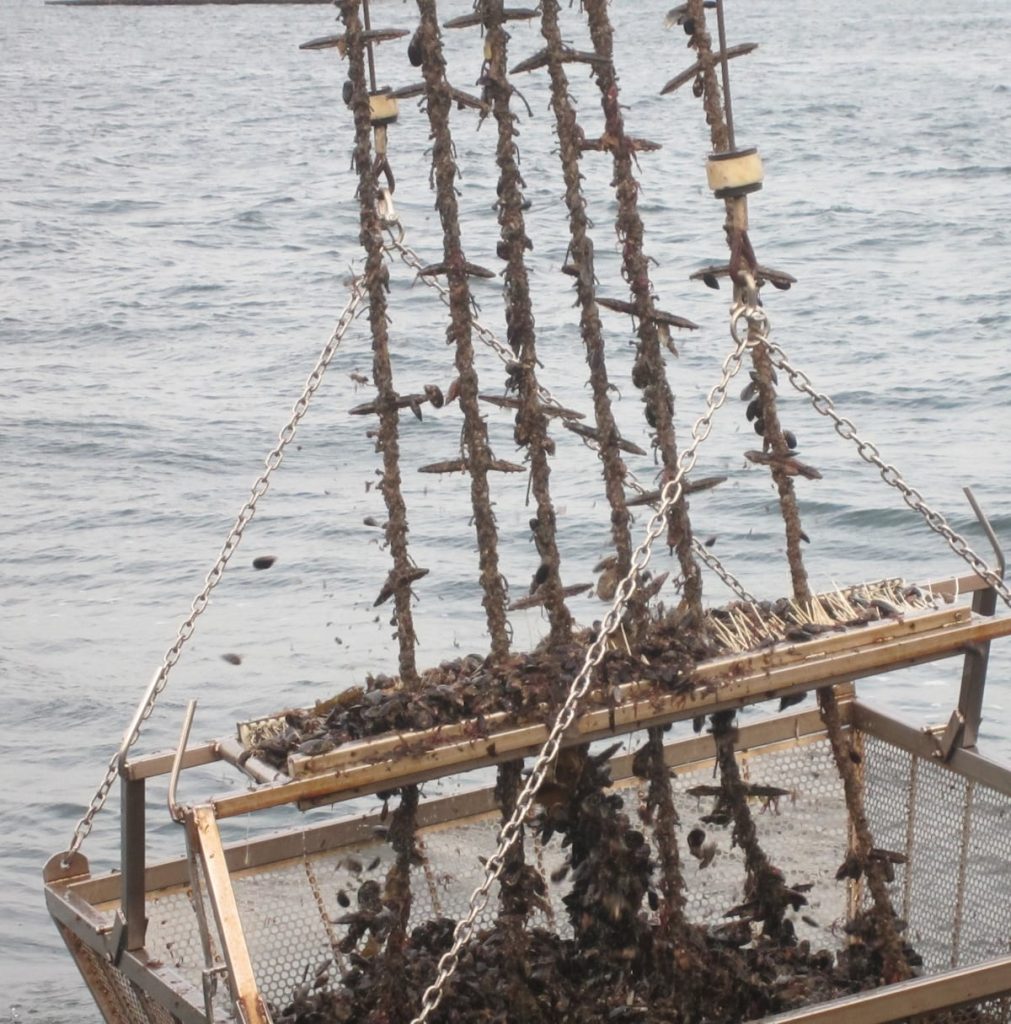In January, while a volunteer army gathered from around the world was working to clean up industrial pellets spilled on the beaches of Galicia, artist Maria Arceo noticed a large amount of “batea sticks” mixed in with the marine debris. Arceo, originally from Compostela but based in London, uses plastic waste collected from the River Thames and Galician beaches as the raw material for her artistic creations. She highlighted the unique characteristic of Galician beaches, which are adorned with sticks used in the mussel farming industry. These sticks, made of various types of plastic, play a crucial role in the cultivation of mussels on wooden platforms known as bateas.
Over the summer, environmental groups and volunteers continued to draw attention to the abundance of broken batea sticks found on Galician beaches, amidst other forms of marine debris. These plastic sticks, due to their lightweight and floating nature, have been known to wash up on beaches in the Canary Islands, carried by ocean currents. Despite efforts to reduce their environmental impact, batea sticks can detach from the lines used in mussel farming during the cleaning process, ending up in the sea. The cultivation of mussels is considered one of the most sustainable practices in the region, despite occasional losses of materials like batea sticks.
With thousands of bateas scattered across the rivers in Galicia, each capable of holding up to 500 ropes made of nylon, the mussel industry produces millions of kilos of mussels annually. While efforts are made to recover and reuse the batea sticks, some inevitably end up in the sea. The European Union recognizes mussel farming as an environmentally-friendly practice, vital for maintaining the health of the region’s marine ecosystems. Bateeiros, or mussel farmers, are often found along the shores collecting discarded materials, showcasing their commitment to sustainable practices.
In an attempt to find alternatives to plastic batea sticks, research was conducted using various types of wood and materials. However, it was determined that the plastic sticks currently in use are the most durable and flexible option for cleaning the ropes on bateas. Originally made of wood, the sticks were replaced with plastic in the 1980s for efficiency and durability. While efforts have been made to reduce the environmental impact of mussel farming, the threat of competition from companies with less stringent regulations in other countries remains a concern for bateeiros in Galicia.
Despite ongoing conservation efforts, batea sticks continue to pose a challenge for marine environments. While some sticks may wash up on beaches, they are relatively easy to clean up compared to other forms of marine debris. The long lifespan and lightweight nature of the plastic sticks make them a persistent presence in the marine environment. As the mussel industry in Galicia navigates the challenges of sustainable practices and environmental conservation, the issue of batea sticks serves as a reminder of the importance of responsible waste management and the need for continuous research and innovation in the industry.


